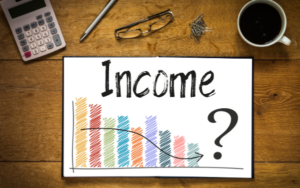
If you'd like to read about Income Protection in-depth, read our article: Income Protection Insurance - Do you really need it?
Income Protection Insurance Claims
When arranging your income protection insurance, you choose an amount of monthly or annual income that you need if you were to become incapacitated and need to claim. This amount is limited by how much you earn. Usually, you can insure up to 70% of your gross income but you can choose less if that is what you need. Importantly, you can't insure more as you cannot be made better off than you would have been at work.
Assessing an Income Protection Insurance claim
If you are unable to work due to illness or injury and need to claim against your income protection insurance, you should get in touch with your insurance company as soon as possible. Your policy will have a waiting period between your first day of incapacity (when the illness or injury started) to when you receive your first payment; this is also referred to as a deferment period and is set at the outset. Importantly, you do not have to wait for the completion of the deferment period before submitting a claim; in fact, you'll help your insurer by letting them know in advance so that they can be ready to make your claim payment to you as soon as you qualify to start receiving it. The claims process is normally straightforward, but as with any claim, you'll need to supply evidence and this can take time.
What do I need to provide when claiming on my Income Protection policy?
A claims handler will ask you for an account of your incapacity including the following:
- Nature of your incapacity
- Dates and details for medical consultations
- Dates for when you stopped working
- Details of any treatment that you are receiving
- Documentation that verifies this
Do I need to prove my income when I claim on my Income Protection policy?
Yes. A claims handler will ask you for proof of your earnings including the following:
- Your last 3-12 months' payslips
- Your last tax return if you are self employed
If your most recent income has reduced (eg. due to the effects of a pandemic) many insurance companies will look at your income from the previous year too. Our research shows that most insurance companies try to ensure that their customers do not lose out due to a recent dip in earnings if they do become incapacitated and need to claim.
It is always best to speak with your insurance company if you need clarity on a potential claim.
How to compare and buy the best Income Protection Insurance
There are many different income protection options available and some have different claim requirements that may be better suited to how you earn. So, if you are searching for income protection insurance, it is our opinion that you are best served by speaking to a specialist adviser. We have vetted the services provided by LifeSearch*, a company that provides bespoke, independent income protection advice free of charge. An adviser will take all of your information and guide you to the best income protection policy to suit your circumstances. Additionally, as a Money to the Masses reader, you will receive £50 cashback if you arrange a policy.
If a link has an * beside it this means that it is an affiliated link. If you go via the link, Money to the Masses may receive a small fee which helps keep Money to the Masses free to use. The following link can be used if you do not wish to help Money to the Masses and do not wish to qualify for the cashback referred to in the article - LifeSearch





